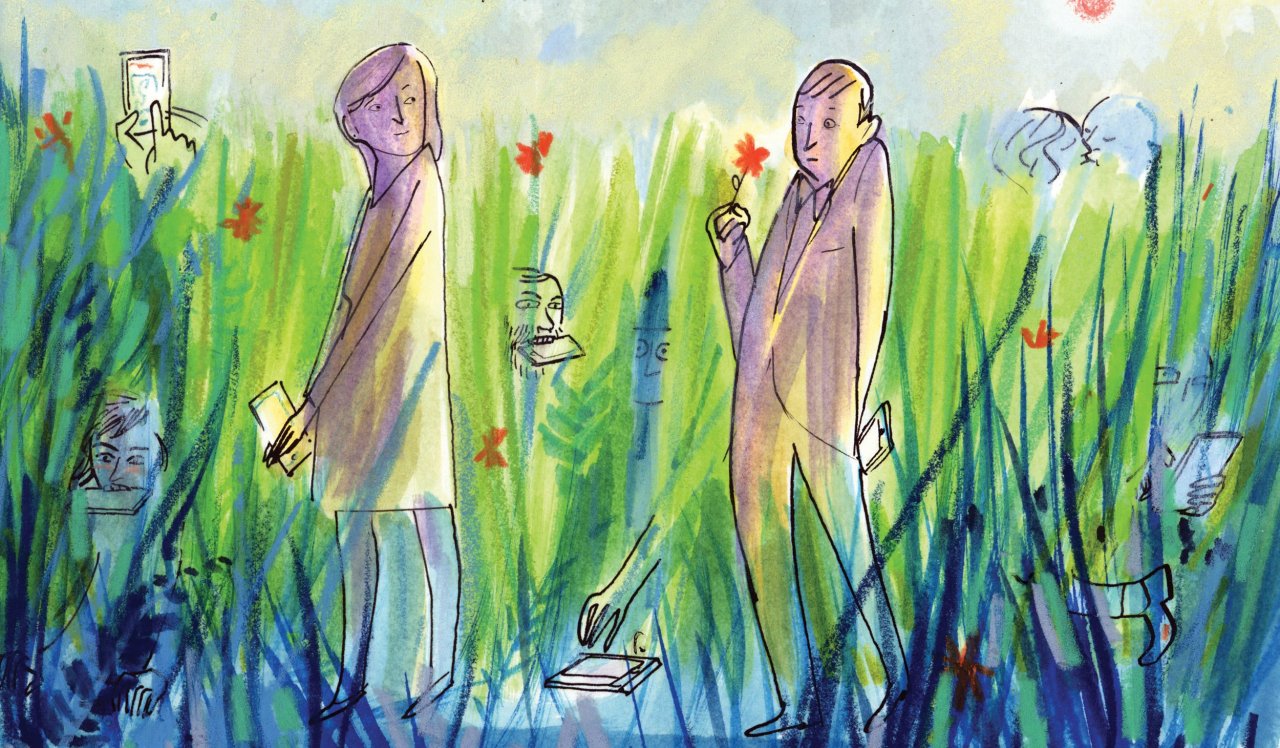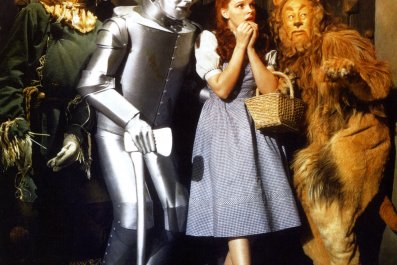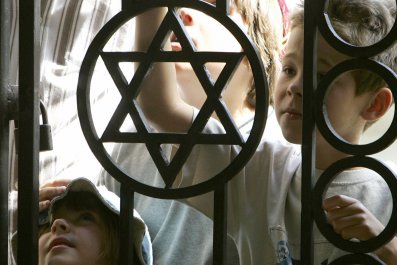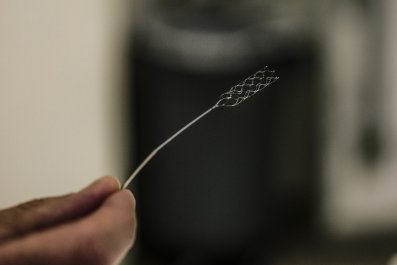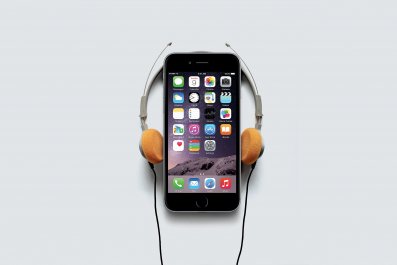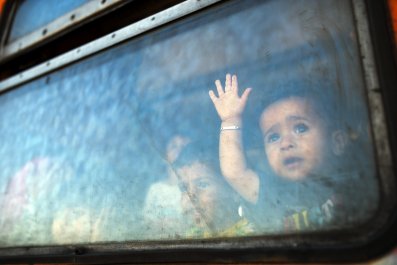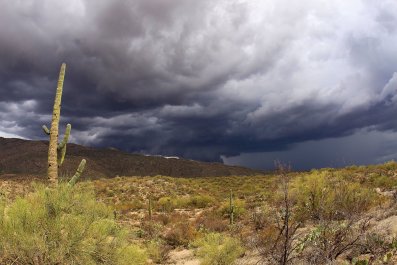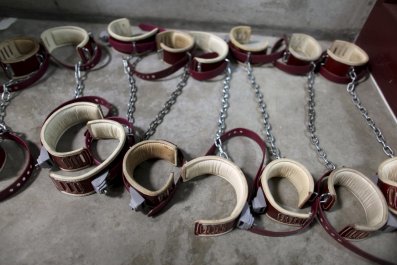On Christmas, I flew to Prague to spend the holidays with a beautiful and hilarious Estonian girl I had never met—not in person, anyway. We dined on blood sausage and potato salad. On New Year's, her Russian friends cooked dinner, and we all went out to watch the fireworks on the Charles Bridge.
I have Tinder to thank for that. A month earlier, the Estonian girl and I had matched on the dating app, as I was about to board a train for Paris. We talked over the next few weeks and decided on a crazy first date. We're friends to this day.
I realize that one person's experience doesn't sum up anything, that even the most colorful anecdotes can't really rebuff the myth that has crept into the American consciousness: that Tinder—that app wherein users swipe right to choose (or swipe left to reject) potential mates—is a wretched realm for shallow sex addicts, ruining not just monogamy but dating itself. This argument reared its head again of late in a piece in Vanity Fair's September issue, "Tinder and the Dawn of the Dating Apocalypse." Most of the story is based on man-on-the-street-style interviews that presume most people use Tinder for sex and then confirm most people use Tinder for sex via interviews with people who use Tinder for sex.
The author, Nancy Jo Sales, is missing the point. So are most people when they vent about Tinder and how it has ruined dating/love/monogamy. Their argument is overly obvious: that it's too easy to find a new (sex) partner, and therefore nobody settles down anymore, swiping the moment something goes wrong in a relationship. But this lament ignores two important elements: what dating was like before online dating, and what online dating is like now.
Don't you remember? Dating has always sucked. Your options were: meet through friends (and our circle of friends tends to dwindle as we get older, so that stops working by one's mid-20s); meet at a bar (kind of like meeting on Tinder except when a guy comes up to you and says something creepy, you still have to engage instead of just putting your phone down); meet at Whole Foods (which never happens); and so on. These options were so terrible that we all endured months-long "droughts" in which eligible single people dated no one and instead watched VHS tapes and ate popcorn every Saturday night.
Tinder has a terrible reputation for being a "hookup app," but let's remember that before it came along the top two online-dating options were Match and OkCupid. On both of those sites, women had to sift through dozens of boring or creepy messages to find anything worth responding to, and guys copied and pasted hundreds of boring or creepy messages because they grew so accustomed to being ignored that there was no point in spending time crafting the perfect message to the perfect girl. Tinder works better than anything else because you can't message anyone unless they pick you too; that's why it's popular.
But here's the point everyone misses: It's still a numbers game. Most dates suck, because most people suck. All Tinder did was increase the chances for both men and women to meet new people. Any reasonably well-adjusted person in a reasonably sized city who spends enough time swiping and chatting could go on a few dates a month. Most of them are going to suck, yes. But that's how it was before too, only spread out over a longer period. Back then, we just blamed dating. Now we blame Tinder.



